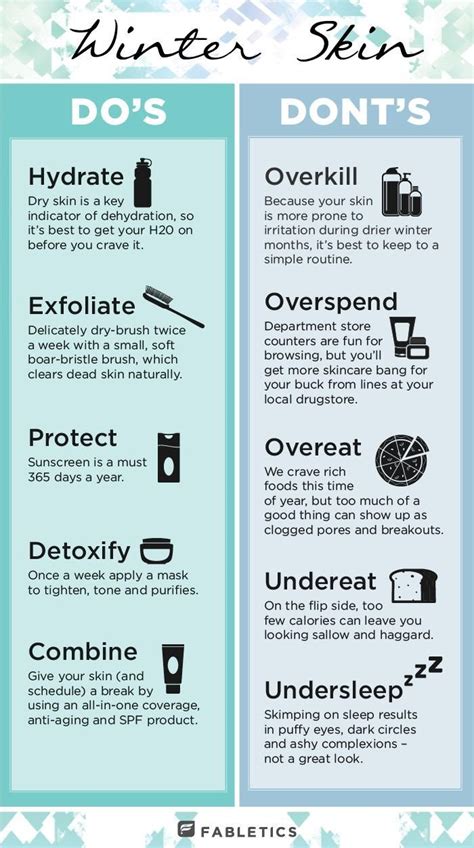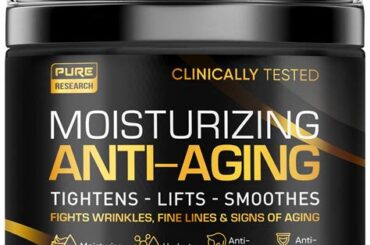Why Is Winter Skincare Important?
Winter skincare is crucial for maintaining healthy and glowing skin during the colder months. As the temperature drops and the air becomes drier, our skin tends to become dry, tight, and flaky. The harsh winter elements, such as cold winds and low humidity levels, can zap the moisture from our skin, leaving it dehydrated and vulnerable to various skin issues.
One of the main reasons why winter skincare is important is to protect our skin from moisture loss. The cold weather and indoor heating can strip our skin of its natural oils, leading to dryness and irritation. By following a proper skincare routine and using the right winter skincare products, we can keep our skin hydrated and prevent it from becoming dry and dull.
Moreover, winter skincare is essential for preventing common winter skin problems such as chapped lips, cracked hands, and eczema flare-ups. The lack of humidity in the air can cause our lips to become dry and chapped, while frequent handwashing and exposure to cold air can result in dry and cracked hands. Additionally, individuals with sensitive or eczema-prone skin may experience more severe symptoms during winter, making it crucial to prioritize skincare.
- Moisturizing: Using a rich, emollient moisturizer is vital for winter skincare. Look for moisturizers that contain ingredients like hyaluronic acid, ceramides, and glycerin, which help to lock in moisture and restore the skin’s barrier function.
- Exfoliating: Gentle exfoliation is necessary to remove dead skin cells and promote cell turnover, allowing moisturizers to penetrate deeper. Choose a gentle exfoliator and limit it to once or twice a week to avoid over-exfoliation.
- SPF Protection: Although it may seem unnecessary during winter, applying sunscreen is still important. The winter sun, combined with the reflection of snow, can still cause damage to the skin. Opt for a broad-spectrum sunscreen with at least SPF 30.
In addition to a proper skincare routine, there are also several DIY winter skincare remedies that can help keep your skin healthy and nourished. These include using natural ingredients like honey, yogurt, and avocado for homemade face masks, and incorporating essential oils like lavender or chamomile into your skincare routine for added hydration and relaxation.
Understanding Your Skin’s Needs in Winter
Understanding Your Skin’s Needs in Winter
Winter is a beautiful season that brings about chilly weather, cozy sweaters, and festive celebrations. However, it also brings along some challenges for our skin. The harsh cold temperatures and dry indoor heat can leave our skin feeling tight, dry, and uncomfortable. To keep your skin healthy and glowing during the winter months, it is important to understand its specific needs and take proper care.
One of the key factors to consider during winter is the moisture balance of our skin. Cold weather and low humidity levels can strip our skin of its natural oils, leading to dryness and flakiness. To combat this, it is crucial to **hydrate** your skin properly. Opt for a rich and emollient moisturizer that contains ingredients like **hyaluronic acid** or **ceramides** to lock in moisture and create a protective barrier. Regularly applying moisturizer, especially after cleansing or showering, will replenish your skin’s moisture and keep it soft and supple throughout the winter.
In addition to moisturizing, **gentle exfoliation** is also important to maintain a healthy complexion during winter. Cold weather can cause a buildup of dead skin cells, leading to dull and lackluster appearance. Use a mild exfoliator at least once a week to slough off dead skin cells and reveal a brighter complexion underneath. Avoid harsh scrubs that can irritate the skin, and opt for **chemical exfoliants** containing alpha-hydroxy acids or beta-hydroxy acids, which are gentler yet effective in removing dead skin cells.
- Keep yourself hydrated by drinking plenty of water.
- Protect your skin by wearing a broad-spectrum sunscreen.
- Use a humidifier to add moisture to the air in your home.
- Wear protective clothing, such as hats, scarves, and gloves, to shield your skin from cold winds.
- Avoid taking hot showers or baths, as hot water can strip the moisture from your skin.
Furthermore, it is essential to adjust your skincare routine according to the changing season. Swap lightweight cleansers for **cream or oil-based cleansers** that provide extra hydration. Incorporate a **hydrating serum** into your skincare routine to provide an extra boost of moisture. Additionally, don’t forget to **protect your lips** by using a nourishing lip balm with SPF to prevent dryness and chapping.
| Key Takeaways: |
|---|
| Understanding your skin’s needs during winter will help you keep it healthy and hydrated. |
| Moisturize your skin with a rich moisturizer containing hyaluronic acid or ceramides to replenish moisture and create a protective barrier. |
| Gently exfoliate to remove dead skin cells and reveal a brighter complexion. Choose mild exfoliators or chemical exfoliants. |
| Drink plenty of water, wear sunscreen, use a humidifier, wear protective clothing, and avoid hot showers to protect your skin from winter damage. |
| Adapt your skincare routine by using cream or oil-based cleansers, hydrating serums, and nourishing lip balms. |
By understanding and addressing the specific needs of your skin during winter, you can ensure that it remains healthy, nourished, and radiant throughout the colder months. Remember to listen to your skin, be consistent with your skincare routine, and make necessary adjustments to protect and care for your skin during this beautiful but demanding season.
Choosing the Right Moisturizer for Winter
When the cold winter months approach, it’s important to give your skin the extra care and attention it needs. One of the key aspects of winter skincare is choosing the right moisturizer for your skin. Moisturizers play a crucial role in protecting and hydrating the skin, helping to combat the drying and damaging effects of the harsh winter elements.
Firstly, it’s essential to understand your skin type and its specific needs during winter. The colder temperatures, low humidity, and indoor heating can all contribute to dryness and flakiness. If you have dry or sensitive skin, opt for a moisturizer that is rich in emollients and nourishing ingredients such as shea butter, ceramides, or hyaluronic acid. These ingredients will help to lock in moisture and provide long-lasting hydration to your skin.
On the other hand, if you have oily or combination skin, it’s important to choose a moisturizer that is lightweight and non-comedogenic. Look for formulations that are oil-free or have a gel-like consistency to prevent clogged pores and excess oil production. Ingredients like salicylic acid or niacinamide can also help to regulate sebum production and keep your skin balanced.
Furthermore, don’t forget the importance of sun protection even during the winter months. Opt for a moisturizer with broad-spectrum SPF to shield your skin from the harmful UV rays. Although the sun may not feel as intense during winter, UV rays can still cause damage and lead to skin aging and other skin concerns.
- Consider a moisturizer with added antioxidants like vitamin C or green tea extract. These ingredients can help to fight against free radicals and minimize the effects of environmental damage on your skin.
- Look for moisturizers that have added ingredients such as ceramides or peptides. These can help to strengthen the skin barrier and improve its overall health and resilience.
- Don’t forget to read and understand the labels of the moisturizers you are considering. Avoid products that contain potentially irritating ingredients, such as fragrances or alcohol.
In conclusion, choosing the right moisturizer for winter is essential for maintaining healthy and hydrated skin. By understanding your skin type and its specific needs, you can select a moisturizer that will effectively protect, hydrate, and nourish your skin throughout the cold winter months. Remember to prioritize sun protection and look for additional beneficial ingredients that can improve the overall health and appearance of your skin. With the right moisturizer, you can keep your skin glowing and beautiful even during the harshest winter conditions.
Protecting Your Skin from Harsh Winter Elements
Winter can be a magical season with snowflakes, cozy sweaters, and hot cocoa. However, it can also wreak havoc on our skin. The harsh winter elements, such as cold temperatures, low humidity, and biting winds, can strip our skin of its natural moisture and leave it feeling dry, tight, and irritated. It’s crucial to protect our skin from these harsh elements to maintain its health and radiance.
One of the best ways to protect our skin from the harsh winter elements is by using a moisturizer specifically designed for winter conditions. During this time of year, our skin requires extra hydration and nourishment. Look for moisturizers that are rich in emollients, humectants, and occlusives. Emollients, like oils and butters, help soften the skin and prevent moisture loss. Humectants, such as hyaluronic acid and glycerin, attract and retain moisture. Occlusives, like petrolatum and dimethicone, form a protective barrier on the skin’s surface to prevent water loss.
In addition to using a moisturizer, it’s important to protect our skin from the windy and cold winter air. One of the simplest ways to do this is by wearing warm clothing that covers as much skin as possible. This can include scarves, hats, gloves, and even masks if the weather is exceptionally harsh. These protective layers help shield our skin from direct exposure to the elements and reduce the risk of moisture loss.
Another crucial step in protecting our skin from harsh winter elements is by avoiding hot showers and opting for lukewarm water instead. Although a steamy shower may feel comforting on a cold day, hot water can actually strip the skin of its natural oils and worsen dryness. Instead, aim for shorter showers with lukewarm water to help preserve your skin’s moisture barrier.
- Use a moisturizer with emollients, humectants, and occlusives.
- Wear warm clothing to protect your skin from the cold wind.
- Opt for lukewarm showers instead of hot ones to prevent dryness.
| Moisturizer Ingredients | Function |
|---|---|
| Emollients (oils, butters) | Softens the skin and prevents moisture loss |
| Humectants (hyaluronic acid, glycerin) | Attracts and retains moisture |
| Occlusives (petrolatum, dimethicone) | Forms a protective barrier on the skin’s surface |
Lastly, don’t forget to hydrate from the inside out. Drinking plenty of water during winter is just as important as in warmer months. The cold weather can dehydrate our bodies and skin, so it’s essential to replenish that moisture by staying well-hydrated. Additionally, consider using a humidifier in your home to combat the dry indoor air caused by heaters, as it can further contribute to skin dryness.
By taking these steps to protect your skin from the harsh winter elements, you can ensure that it remains healthy, hydrated, and radiant throughout the season. Remember, prevention is key when it comes to skincare, especially during the challenging winter months. So bundle up, moisturize, and shield your skin to enjoy the beauty of winter without compromising your skin’s health!
DIY Winter Skincare Remedies for Healthy Skin
During winter, our skin tends to become dry, dull, and flaky due to the harsh weather conditions. The cold temperature, low humidity, and exposure to indoor heating systems can strip the skin of its natural moisture, leading to various skin issues. However, with the right DIY skincare remedies, you can nourish and protect your skin, keeping it healthy and radiant throughout the winter season.
One of the most effective remedies for winter skincare is using natural ingredients that are easily available in your kitchen. Honey is a great moisturizer and can be used as a face mask by applying a thin layer on the skin for about 10-15 minutes, then rinsing it off with warm water. Another excellent ingredient is aloe vera, which has soothing and hydrating properties. Applying fresh aloe vera gel on your face before going to bed can help to keep your skin moisturized.
Coconut oil is another fantastic remedy for winter skincare. Its fatty acids help to lock in moisture, making it an ideal choice for dry skin. Massage a few drops of warm coconut oil onto your face and body before taking a shower. Leave it on for a few minutes to allow your skin to absorb the oil, then rinse off with warm water. This will leave your skin feeling hydrated and soft.
To ensure your lips stay moisturized during the winter, create your own DIY lip balm using beeswax, coconut oil, and a few drops of essential oil for fragrance. Melt the beeswax and coconut oil together in a double boiler, and then add a few drops of your favorite essential oil. Pour the mixture into small containers and let it cool and solidify. Apply this homemade lip balm regularly to prevent dry and chapped lips.
In addition to these DIY remedies, it is important to maintain a healthy skincare routine during the winter months. This includes using a mild cleanser to avoid stripping the skin of its natural oils, exfoliating regularly to remove dead skin cells, and applying sunscreen to protect your skin from harmful UV rays, which can still be damaging in winter. Additionally, drinking plenty of water and eating a balanced diet rich in fruits and vegetables will contribute to overall skin health.
In conclusion, taking care of your skin during winter is crucial to keep it healthy and glowing. With these DIY skincare remedies and a consistent skincare routine, you can combat the effects of the harsh cold weather and maintain beautiful, nourished skin all season long.
Frequently Asked Questions
Why is winter skincare important?
Winter skincare is important because the cold temperatures and low humidity can lead to dry, cracked skin. It can also exacerbate existing skin conditions like eczema and psoriasis. Taking care of your skin during winter can help prevent these issues and keep your skin healthy and hydrated.
What are the specific needs of your skin in winter?
In winter, your skin needs extra hydration to combat the dryness caused by cold weather and indoor heating. It also needs protection from harsh elements such as wind and cold temperatures. Additionally, it may require products that help repair the skin barrier and soothe any inflammation or irritation.
How do you choose the right moisturizer for winter?
When choosing a moisturizer for winter, opt for thicker, creamier formulas that provide intense hydration. Look for ingredients like hyaluronic acid, glycerin, and ceramides, which help lock in moisture and strengthen the skin’s barrier. Consider your skin type and any specific concerns you have, such as sensitivity or aging, when selecting a moisturizer.
How can you protect your skin from harsh winter elements?
To protect your skin from harsh winter elements, start by wearing appropriate clothing, such as hats, scarves, and gloves, to shield exposed areas. Use a broad-spectrum sunscreen with an SPF of 30 or higher, even on cloudy days, to protect against UV rays. Apply a nourishing lip balm to prevent chapping, and use a humidifier indoors to combat dry air.
What are some DIY winter skincare remedies for healthy skin?
Some DIY winter skincare remedies include using natural ingredients like honey or yogurt as a hydrating face mask. You can also make a gentle exfoliating scrub using ingredients like sugar and olive oil to slough off dry, dead skin cells. Additionally, applying coconut oil or shea butter to dry patches can provide deep moisture and soothing relief.
How can you prepare your skin for winter?
To prepare your skin for winter, start by incorporating a hydrating cleanser and moisturizer into your skincare routine. Use gentle exfoliants to remove dead skin cells and allow better absorption of moisturizing products. Remember to drink plenty of water to stay hydrated from within, and adjust your diet to include foods rich in omega-3 fatty acids and antioxidants for healthy skin.
Can you recommend any specific products for winter skincare?
While specific products may vary depending on individual needs and preferences, some popular recommendations for winter skincare include ceramide-based moisturizers like CeraVe Moisturizing Cream, hydrating serums like hyaluronic acid serums, and occlusive agents like Vaseline or Aquaphor for extra protection against dryness.





